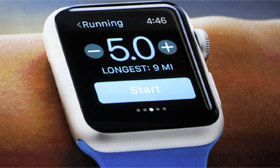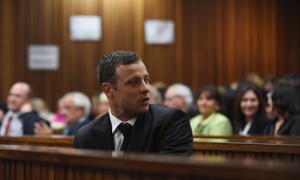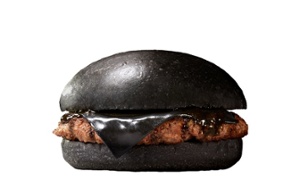Genetically modified food, data privacy and surveillance techniques are among the new screening tests the Co-operative Bank is considering adding to its ethical policy, under which it has turned away £1.2bn of business in the past 20 years.
The bank's chief, Niall Booker, parachuted in to run the bank a year ago, will launch a survey this week of its 4.7 million customers with a view to updating its existing ethical criteria, first introduced in 1992.
The bank's continued ability to describe itself as ethical has come into question since last year's crisis, which has left the Co-operative Group of supermarkets, funeral homes and pharmacies – the UK's largest mutual – with a stake of just 20% in the bank it once owned outright.
But writing in the Guardian, Booker defends the bank's ethical stance, even though it is now owned by an array of investors, including US hedge funds. "Our ethical policy helps us define not just what we don't do, but what we do do, the way we behave and the stance we take. It's what makes us different as a bank, and we need to protect it," Booker wrote.
"We need to rebuild the reputation of banks and bankers as trusted custodians of people's money, giving objective, impartial advice untainted by opportunities for personal gain, and at the same time make banking transactions as frictionless as possible. At a time when the BBC is bringing back Dad's Army, Captain Mainwaring updated for the digital age should make a return to banking," he added.
The ethical policy currently covers five areas – human rights, international development, economic development, the environment and animal welfare – and the poll includes new questions covering these areas, such as the inclusion of GM food, mass surveillance and fracking.
But as the Co-op Bank is no longer involved in lending to big companies, the poll will include three new issues covering the bank's approach to its customers – responsible banking, transparency, and the fair treatment of customers.
Lord Myners, who was brought in to devise reforms for the group but who left the board last month, has said the bank's bill for mis-selling payment protection insurance had showed that "the ethical credentials were not so deeply embedded as some people assumed". Earlier this year – just months after an emergency £1.5bn capital injection – the bank had to ask for another £400m to cover the cost of a string of misconduct issues, including PPI.
Referring to the events leading to last year's crisis, Booker said: "We got ourselves into a mess, like some other banks. And yet we have a proud tradition of doing things differently." He said the survey of customers would be "an important step in our rehabilitation".
The bank has polled its customers on its ethical stance four times since 1992, most recently six years ago. Last month Laura Carstensen, a commissioner at the Equality and Human Rights Commission, was appointed to chair the bank's ethical and values committee.
Separately, the Co-op Group conducted a poll of its members and the public three months ago, but those findings have not yet been made public, following the departure of its chief executive, Euan Sutherland, after details of his £6.6m two-year pay deal were leaked to the Observer.




















